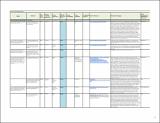Por favor, use este identificador para citar o enlazar a este item:
http://hdl.handle.net/10261/216096COMPARTIR / EXPORTAR:
 SHARE SHARE
 CORE
BASE CORE
BASE
|
|
| Visualizar otros formatos: MARC | Dublin Core | RDF | ORE | MODS | METS | DIDL | DATACITE | |

| Título: | Mapping citizen science contributions to the UN sustainable development goals |
Autor: | Fraisl, Dilek; Campbell, Jillian; See, Linda; Wehn, Uta; Wardlaw, Jessica; Gold, Margaret; Moorthy, I.; Arias, Rosa; Piera, Jaume CSIC ORCID ; Oliver, Jessica L.; Masó, Joan; Penker, Marianne; Fritz, Steffen | Palabras clave: | Sustainable development goals Citizen science SDG indicators Tier classification for SDG indicators Crowdsourcing Community-based monitoring |
Fecha de publicación: | nov-2020 | Citación: | Sustainability Science 15(6): 1735-1751 (2020) | Resumen: | The UN Sustainable Development Goals (SDGs) are a vision for achieving a sustainable future. Reliable, timely, comprehensive, and consistent data are critical for measuring progress towards, and ultimately achieving, the SDGs. Data from citizen science represent one new source of data that could be used for SDG reporting and monitoring. However, information is still lacking regarding the current and potential contributions of citizen science to the SDG indicator framework. Through a systematic review of the metadata and work plans of the 244 SDG indicators, as well as the identification of past and ongoing citizen science initiatives that could directly or indirectly provide data for these indicators, this paper presents an overview of where citizen science is already contributing and could contribute data to the SDG indicator framework. The results demonstrate that citizen science is “already contributing” to the monitoring of 5 SDG indicators, and that citizen science “could contribute” to 76 indicators, which, together, equates to around 33%. Our analysis also shows that the greatest inputs from citizen science to the SDG framework relate to SDG 15 Life on Land, SDG 11 Sustainable Cities and Communities, SDG 3 Good Health and Wellbeing, and SDG 6 Clean Water and Sanitation. Realizing the full potential of citizen science requires demonstrating its value in the global data ecosystem, building partnerships around citizen science data to accelerate SDG progress, and leveraging investments to enhance its use and impact | Descripción: | 17 pages, 4 figures, supplementary material https://doi.org/10.1007/s11625-020-00833-7 | Versión del editor: | https://doi.org/10.1007/s11625-020-00833-7 | URI: | http://hdl.handle.net/10261/216096 | DOI: | 10.1007/s11625-020-00833-7 | ISSN: | 1862-4065 | E-ISSN: | 1862-4057 |
| Aparece en las colecciones: | (ICM) Artículos |
Ficheros en este ítem:
| Fichero | Descripción | Tamaño | Formato | |
|---|---|---|---|---|
| Fraisl_et_al_2020.pdf | 1,98 MB | Adobe PDF |  Visualizar/Abrir | |
| Fraisl_et_al_2020_suppl.pdf | 537,11 kB | Adobe PDF |  Visualizar/Abrir |
CORE Recommender
SCOPUSTM
Citations
200
checked on 06-may-2024
WEB OF SCIENCETM
Citations
142
checked on 24-feb-2024
Page view(s)
184
checked on 13-may-2024
Download(s)
267
checked on 13-may-2024
Google ScholarTM
Check
Altmetric
Altmetric
Este item está licenciado bajo una Licencia Creative Commons

